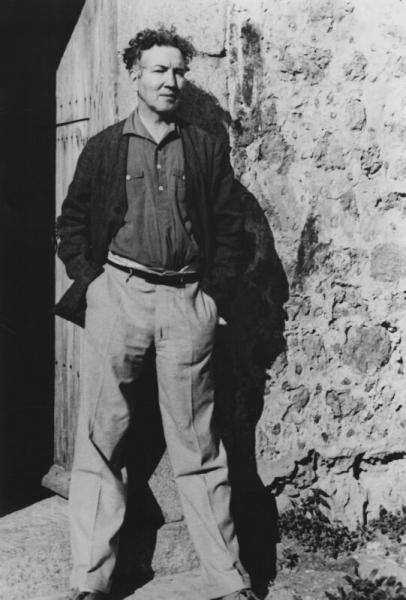
from I Claudius
Triumphs, by the way, have been a curse to Rome. How many unnecessary wars have been fought because generals wanted the glory of riding crowned through the streets of Rome with enemy captives led in chains behind them and the spoils of war heaped on carnival wagons? Augustus realized this: on Agrippa's advice, he decreed that henceforth no general, unless a member of the Imperial family, should be awarded a public triumph. This decree, published in the year that I was born, read as though Augustus were jealous of his generals, for by that time he had finished with active campaigning himself and no members of his family were old enough to win triumphs; but all it meant was that he did not wish the boundaries of the Empire enlarged any further, and that he reckoned that his generals would not provoke the frontier tribes to commit acts of war if they could not hope to be awarded triumphs by victory over them. None the less he allows 'triumphal ornaments' - an embroidered robe, a statue, a chaplet, and so on - to be awarded to those who would otherwise have earned a triumph; this should be a sufficient incentive to any good soldier to fight a necessary war. Triumphs, besides, are very bad for military discipline. Soldiers get drunk and out of hand and usually finish the day by breaking up the wine-shops and setting fire to the oil-shops and insulting the women and generally behaving as if Rome were the city they had conquered, not some miserable log-hut encampment in Germany or sand-burrowed village in Morocco. After a triumph celebrated by a nephew of mine, whom I shall soon be telling you about, 400 soldiers and nearly 4,000 private citizens lost their lives one way and another - five big blocks of tenements in the prostitutes' quarter of the City were burned to the ground and 300 wine-shops sacked, besides any amount of other damage.
*****
'Will you swear to do as I ask? Will you swear by your own head?'
I said: 'Grandmother, I'll swear by my head - for what that's worth now - on one condition.'
'You dare to make conditions to me?'
'Yes, after the twentieth cup; and it's a simple condition. After thirty-six years of neglect and aversion you surely don't expect me to do anything for you without making conditions, do you?'
She smiled. 'And what is this one simple condition?'
'There are a lot of things that I'd like to know about. I want to know, in the first place, who killed my father, and who killed Agrippa, and who killed my brother Germanicus, and who killed my son Drusillus. ...'
'Why do you want to know all this? Some imbecile hope of avenging their deaths on me?'
'No, not even if you were the murderess. I never take vengeance unless I am forced to do so by an oath or in self-protection. I believe that evil is its own punishment. All I want now is just to know the truth. I am a professional historian and the one thing that really interests me is to find out how things happen and why. For instance, I write histories more to inform myself than to inform my readers.'
'Old Athenodorus has had a great influence on you, I see.'
'He was kind to me and I was grateful, so I became a Stoic. I never meddled with philosophical argument - that never appealed to me - but I adopted the Stoic way of looking at things. You can trust me not to repeat a word of what you tell me.'
I convinced her that I meant what I said, and so for four hours or more I asked her the most searching questions; and each question she answered without evasion and as calmly as if she had been some country steward relating the minor casualties of the farm-yard to the visiting owner. Yes, she had poisoned my grandfather, and no, she not poisoned my father in spite of Tiberius's suspicions - it was a natural gangrene; and yes, she had poisoned Augustus by smearing poison on the figs while they were still on the tree; and she told me the whole Julia story as I have related it, and the whole Postumus story - the details of which I was able to check; and yes, she had poisoned Agrippa and Lucius, as well as Marcellus and Gaius, and yes, she had intercepted my letters to Germanicus, but no, she had not poisoned him - Plancina had done that on her own initiative - but she had marked him out for death as she had marked out my father, and for the same reason.
'What reason was that, Grandmother?'
'He had decided to restore the Republic. No, don't mistake me: not in a way which violated his oath of allegiance to Tiberius, though it meant removing me. He was going to make Tiberius take the step himself voluntarily, and allow him all the credit for it, keeping in the background himself. He nearly persuaded Tiberius. You know what a coward Tiberius is. I had to work hard and forge a lot of documents and tell a lot of lies to keep Tiberius from making a fool of Sejanus. This republicanism is a persistent taint in himself. I even had to come to an understanding with the family. Your grandfather had it.'